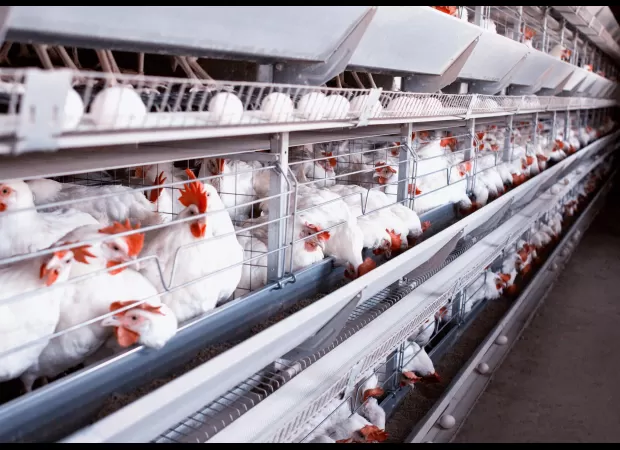American farms could potentially be creating a breeding environment for a widespread outbreak of avian flu.
Bird flu has spread from cows to chickens and people in the US lately.

Thirteen people in the United States have recently been diagnosed with the bird flu, with nine of them being workers at poultry farms located near dairy farms. Scientists are sounding the alarm, warning that a pandemic of the bird flu could possibly originate from within the country's own farms. The H5N1 virus has managed to make the jump from dairy cows to poultry, and even to US farmers in the past few weeks. Despite efforts to contain the outbreak, the number of cases in livestock has continued to rise over the past six months. According to the US Department of Agriculture, as of Wednesday, H5N1 infections have been reported in 192 cattle herds across 13 states. In addition, 13 individuals have been diagnosed with the virus, with nine of them being workers at poultry farms near dairy operations in Colorado.
Amidst the growing spread of the virus, experts are still unsure about how easily and frequently it can be transmitted between humans and other animals, as well as the exact number of cows that have been affected. Dr. Maria Van Kerkhove, the acting director of pandemic preparedness and prevention at the World Health Organization, told The New York Times that there is a need to gain a better understanding of the extent of the virus's circulation in dairy cattle in the US. She emphasized that despite the exhaustion brought about by the ongoing Covid-19 pandemic, the monkeypox variant, and other global issues, we cannot afford to become complacent in the face of the bird flu threat.
Recently, the bird flu has also been detected in beef for the first time in the US, adding to the already alarming situation. This comes at a time when health officials all around the world are on high alert due to the spread of the clade 1 monkeypox variant. In fact, just this week, a cargo ship in Argentina was quarantined after a crew member was suspected of being infected. While health experts continue to raise concerns about the potential for a bird flu pandemic, there is hope that it can still be prevented. Unlike other viruses, H5N1 has not been proven to spread quickly through respiration in cattle. Instead, it has been primarily transmitted through infected milk and objects.
Dr. Juergen Richt, a veterinarian and virologist at Kansas State University, shared with The Times that if we want to control or eradicate this disease, our focus should be on preventing mechanical or human transmission. Some experts believe that it is not yet necessary to vaccinate farm employees against the bird flu, but producing a vaccine for animals could be the most effective way to combat the spread of H5N1 in the meantime. Despite the challenges and exhaustion faced by the world, it is crucial to remain vigilant and take necessary measures to prevent a potential bird flu pandemic from occurring.






